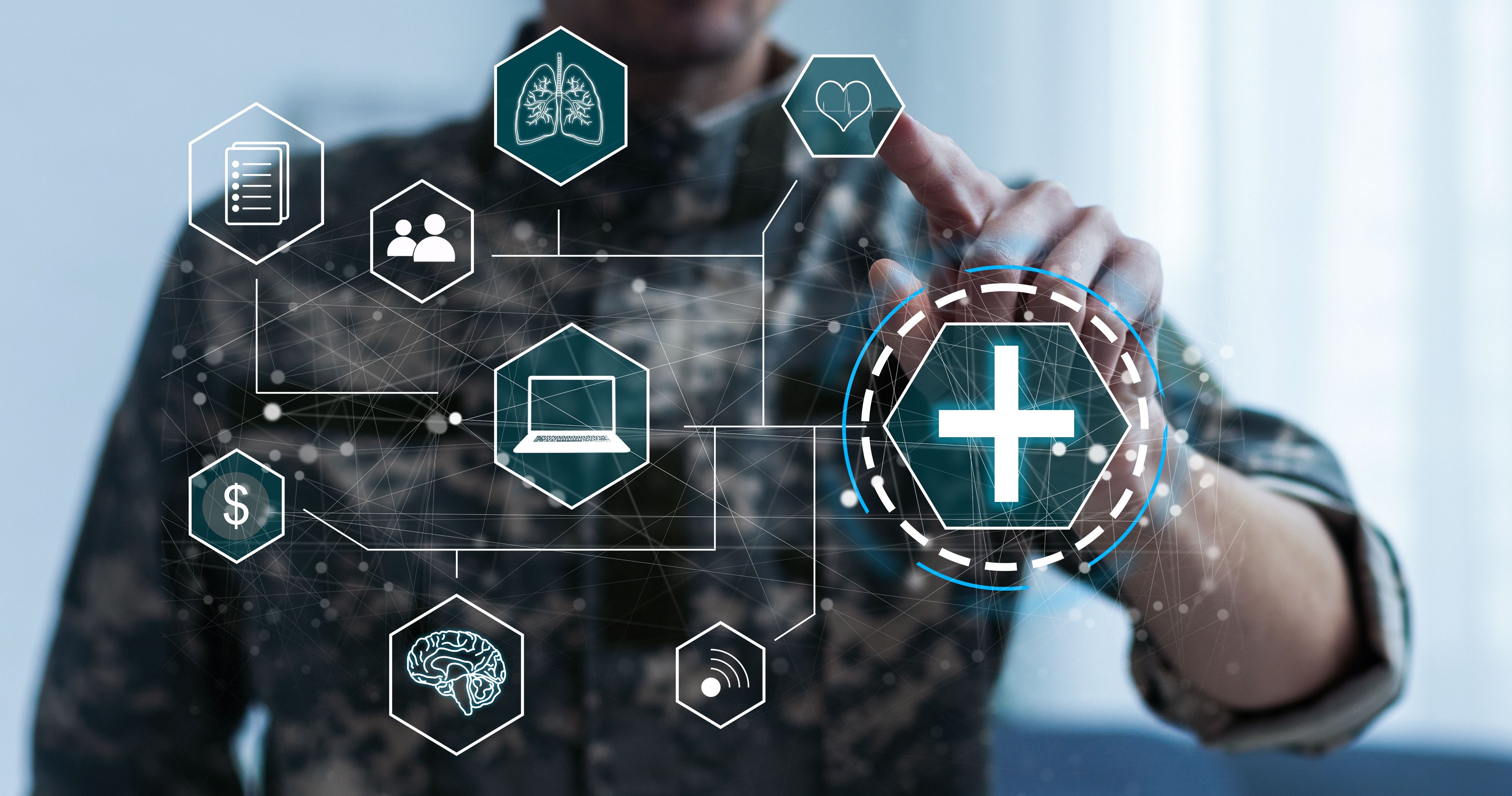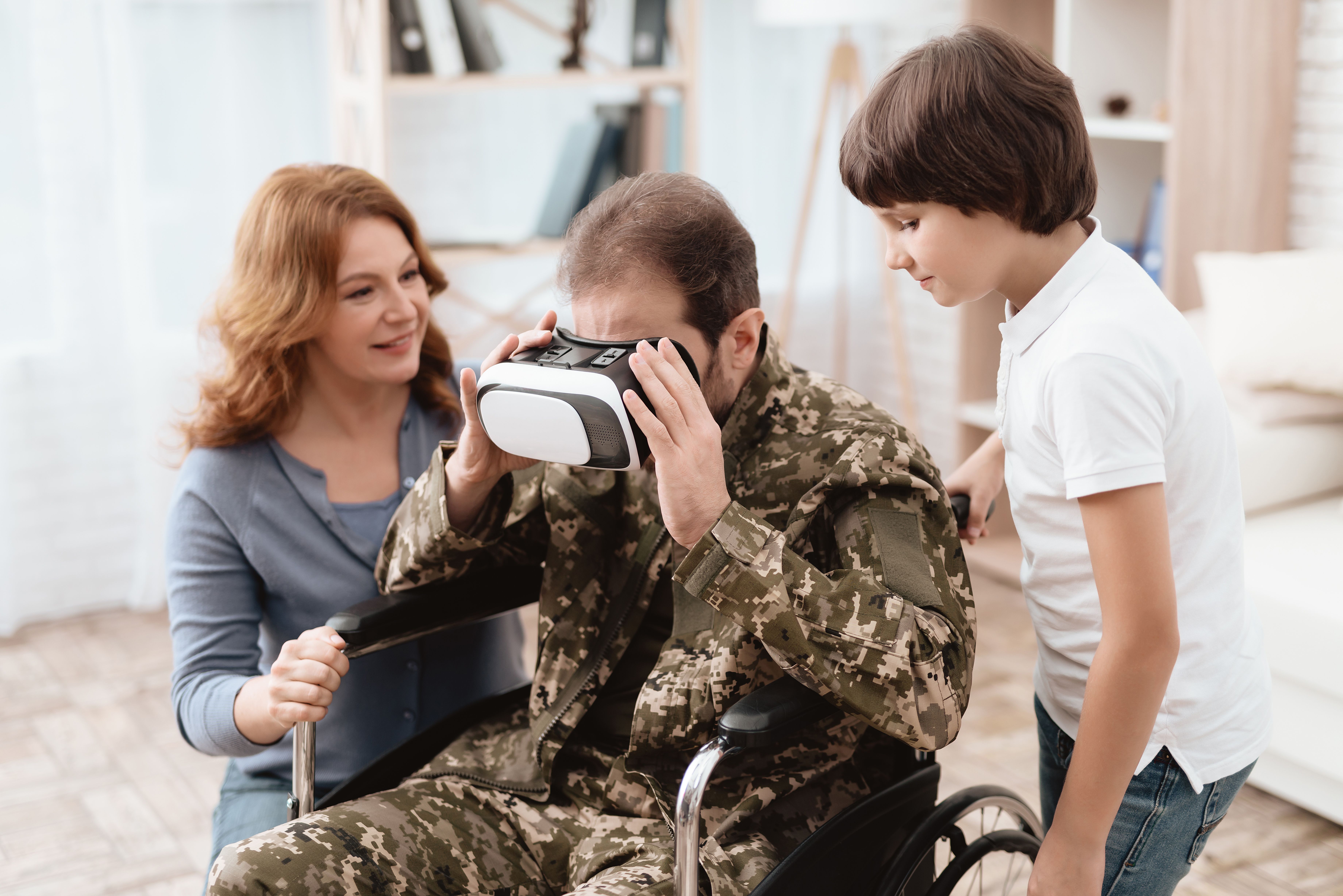Picture a world where a soldier's life is saved on the battlefield, not just by their comrades but also by cutting-edge technologies like virtual reality (VR). This is no longer a far-fetched idea; it's quickly becoming a reality. Given VR is more accessible, affordable, and inclusive than ever, it’s revolutionizing the military healthcare field. In this blog post, we'll explore the applications and benefits of utilizing VR in military healthcare.
VR: A Game Changer in PTSD Treatment for Soldiers
Military life is tough. Soldiers see and experience things that can be incredibly traumatic. It's easy to see why Post-Traumatic Stress Disorder (PTSD) is such a common issue for those in the military.
In fact, studies have shown that 75% of U.S. veterans and active service members have experienced PTSD as a result of their military service.
In the UK, military personnel of all ages can receive daily mental healthcare for PTSD.
Studies conducted by the Australian Defence Force also suggest that between 8% and 17.7% of current and former members experience PTSD.
PTSD is a complex issue affecting military forces worldwide. However, virtual reality has emerged as a promising treatment for those experiencing this condition.
VR-based therapy has been helping people with mental health conditions like PTSD, anxiety, social phobia, and addiction since the 1990s. This type of therapy uses virtual reality to help people confront their fears and anxieties in a safe and controlled environment.
VR is also helpful in exposure therapy because it allows patients to confront simulated environments in a controlled way while providing them with coping techniques to process their trauma.
Easing Pain with VR: A Breakthrough in Pain Management
The military is a unique environment that exposes veterans and active personnel to a variety of stresses. Years of service can lead to chronic pain, which can severely impact their quality of life. For example, they can experience traumatic brain injury (TBI) or fibromyalgia.
VR technologies provide a glimmer of hope for people struggling with chronic conditions. To cite an example, healthcare professionals can use virtual reality environments to teach patients how to cope with pain-related physical sensations and manage their reactions. Patients can visualize themselves in a world with no pain.
VR can also be integrated into other health management therapies like biofeedback, cognitive behavioral therapy, and relaxation exercises. Through this combination of therapies, healthcare professionals can educate patients about their responses to pain and help them understand how their minds and bodies function.
VR for Physical Rehabilitation of Soldiers: A New Way to Heal
Injuries sustained by military personnel can leave lasting impacts on their physical health, often making it challenging to adapt to civilian life once they retire.
Virtual reality is emerging as a promising solution for physical rehabilitation. By immersing patients in engaging environments, VR helps them regain strength, coordination, and mobility on their road to recovery.
Virtual reality also gives healthcare providers immediate feedback on a patient's progress. Additionally, VR technologies are more engaging for patients, which can enhance their experience in health institutions.
Enhancing Military Medical Training with VR
Military medical training has long been challenging due to the unpredictable nature of combat situations.
To get medics ready for the unpredictable nature of their work, virtual reality simulations are becoming more popular, offering an engaging experience that mimics real-life situations. This helps medics develop the essential skills they need to handle emergencies effectively.
VR simulations allow for comprehensive training scenarios that can be tailored to different levels of expertise. For example, basic medical personnel can practice their skills in a safe environment before moving on to more complex scenarios.
This allows them to get real-time experience in advance that will give them the foundation they need for better performance in actual combat situations.
The Power of VR in Military Medical Training
Military medical training has long been challenging due to the unpredictable nature of combat situations.
In order to prepare medics for the unexpected, virtual reality simulations are increasingly being used.
VR simulations can provide an immersive experience that simulates real-world scenarios and helps medics gain the skills to respond effectively in emergencies.
VR simulations allow for comprehensive training scenarios that can be tailored to different levels of expertise. Additionally, it's a safe and cost-effective solution for providing training to healthcare professionals.
For example, basic medical personnel can practice their skills in a safe environment before moving on to more complex scenarios.
This allows them to get real-time experience in advance that will give them the foundation they need for better performance in actual combat situations.
Takeaway
The use of VR technology has brought about incredible benefits and applications in military healthcare, including therapy, rehabilitation, and medical treatment. Exploring this technology and its potential to save lives is crucial. Contact us to learn more!

